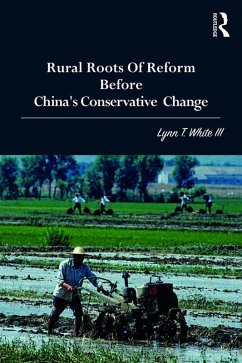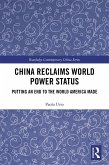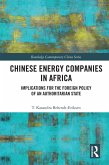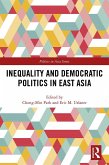China's economic and military rise dominates discussions of the world's most populous country. Resilient authoritarian government is credited with great successes, but this book expands the discourse to include governance by village heads - who often ignored central politicians. Chinese reforms for prosperity started circa 1970 under rural and suburban leaders. They could act autonomously then because of unexpected political and technological opportunities. Their localization of power eroded socialist controls. Since 1990, central leaders have tried to reverse reforms made by resilient local bosses.
New findings, especially from the Yangzi delta around Shanghai, challenge the top-down approach to thinking about governance. As Deng Xiaoping admitted, the nation's spurt of prosperity began in local communities rather than Beijing. Reforms for triple-cropping and rural industrialization started long before Mao's death (not in 1978, the date most writers cite). Country factories competed with state industries for materials and markets. Shortages by the 1980s led to inflation, government deficits, unofficial credit, unenforceable planning, illegal migrations, then international exports - and severe political tensions. After 1990, Party leaders sought policies to build a Leninist regime that is mostly post-socialist. These reactionary changes have lasted into the era of Xi Jinping. China's reforms and subsequent changes can be understood as results of unintended situations not just ideas, and local not just central politics.
This book will interest students and scholars of Chinese, as well as any readers who wonder about comparative development.
New findings, especially from the Yangzi delta around Shanghai, challenge the top-down approach to thinking about governance. As Deng Xiaoping admitted, the nation's spurt of prosperity began in local communities rather than Beijing. Reforms for triple-cropping and rural industrialization started long before Mao's death (not in 1978, the date most writers cite). Country factories competed with state industries for materials and markets. Shortages by the 1980s led to inflation, government deficits, unofficial credit, unenforceable planning, illegal migrations, then international exports - and severe political tensions. After 1990, Party leaders sought policies to build a Leninist regime that is mostly post-socialist. These reactionary changes have lasted into the era of Xi Jinping. China's reforms and subsequent changes can be understood as results of unintended situations not just ideas, and local not just central politics.
This book will interest students and scholars of Chinese, as well as any readers who wonder about comparative development.
Dieser Download kann aus rechtlichen Gründen nur mit Rechnungsadresse in A, B, BG, CY, CZ, D, DK, EW, E, FIN, F, GR, HR, H, IRL, I, LT, L, LR, M, NL, PL, P, R, S, SLO, SK ausgeliefert werden.









